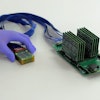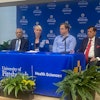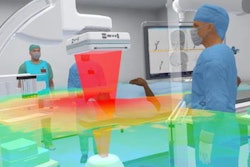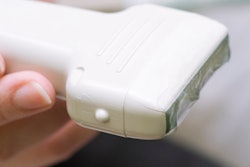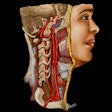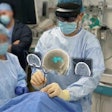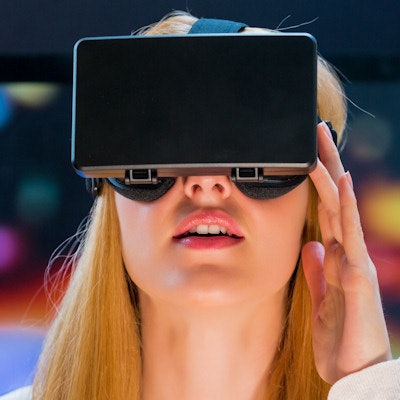
3D virtual reality (VR) simulation-based learning appears to improve the performance of first-year radiography students in clinical settings, an Irish team has found.
The findings bode well for the use of VR in training novice radiographers, wrote researchers Michelle O'Connor, PhD, and Dr. Louise Rainford, both of the University College Dublin in Ireland. Their findings were published November 12 in Radiography.
"VR learning had a positive impact on the performance of first-year students in several aspects of their clinical assessment, in particular patient positioning, exposure parameter selection, and image appraisal skills," O'Connor and Rainford wrote.
Radiography students typically undergo simulation-based learning in an academic laboratory setting through clinical scenario role play and imaging of anthropomorphic phantoms. But no studies to date have looked at whether this training contributes to clinical competence, according to the authors.
O'Connor and Rainford sought to gauge the effect VR training could have on first-year radiography student clinical assessments. They conducted a study that included 191 participants divided into a control group of 93 with no VR education and a test group of 98 who underwent seven hours of practice in the immersive VR suite.
Experienced clinical tutors assessed the students as they performed either an upper or lower limb extremity x-ray exam on a cooperative, ambulatory patient, ranking performance on a 5-point Likert scale (with 1 equal to poor and 5 equal to excellent).
VR-trained students performed better than those who did not have the training across 20 of 22 assessment criteria, ranking as "very good" or "excellent" in such tasks as positioning patients for x-rays, selecting exposure factors, appraising an image for correct patient positioning, and appraising image quality.
In addition, the VR-trained students' comprehension of clinical indications, equipment setup, and explanation of the procedure was also significantly better than their peers who were not trained with the VR tool, the authors noted.
Previous research has shown that immersive VR simulation garners high levels of satisfaction among first-year radiography students and that the training enhances their self-confidence. This study shows VR training also translates to clinical competence among the group, according to O'Connor and Rainford.
"VR simulation-based learning [should be] introduced in the early stages of the radiography degree to assist students in learning basic radiographic technique," they concluded.

